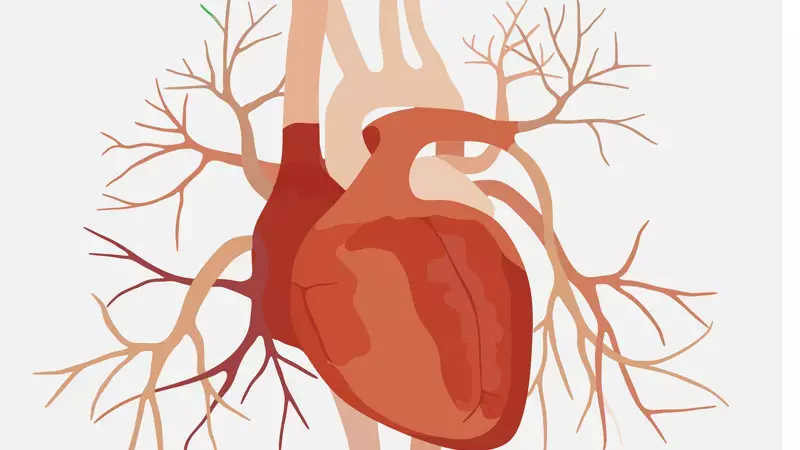- Home
- Medical news & Guidelines
- Anesthesiology
- Cardiology and CTVS
- Critical Care
- Dentistry
- Dermatology
- Diabetes and Endocrinology
- ENT
- Gastroenterology
- Medicine
- Nephrology
- Neurology
- Obstretics-Gynaecology
- Oncology
- Ophthalmology
- Orthopaedics
- Pediatrics-Neonatology
- Psychiatry
- Pulmonology
- Radiology
- Surgery
- Urology
- Laboratory Medicine
- Diet
- Nursing
- Paramedical
- Physiotherapy
- Health news
- Fact Check
- Bone Health Fact Check
- Brain Health Fact Check
- Cancer Related Fact Check
- Child Care Fact Check
- Dental and oral health fact check
- Diabetes and metabolic health fact check
- Diet and Nutrition Fact Check
- Eye and ENT Care Fact Check
- Fitness fact check
- Gut health fact check
- Heart health fact check
- Kidney health fact check
- Medical education fact check
- Men's health fact check
- Respiratory fact check
- Skin and hair care fact check
- Vaccine and Immunization fact check
- Women's health fact check
- AYUSH
- State News
- Andaman and Nicobar Islands
- Andhra Pradesh
- Arunachal Pradesh
- Assam
- Bihar
- Chandigarh
- Chattisgarh
- Dadra and Nagar Haveli
- Daman and Diu
- Delhi
- Goa
- Gujarat
- Haryana
- Himachal Pradesh
- Jammu & Kashmir
- Jharkhand
- Karnataka
- Kerala
- Ladakh
- Lakshadweep
- Madhya Pradesh
- Maharashtra
- Manipur
- Meghalaya
- Mizoram
- Nagaland
- Odisha
- Puducherry
- Punjab
- Rajasthan
- Sikkim
- Tamil Nadu
- Telangana
- Tripura
- Uttar Pradesh
- Uttrakhand
- West Bengal
- Medical Education
- Industry
ACE inhibitors prevent heart failure in becker muscular dystrophy patients when started early

Credit: Getty Images
Amsterdam, September 20, 2021 - There is no consensus on when to introduce cardioprotective treatment in patients with Becker muscular dystrophy (BMD), and practice varies widely.
A new study published in the Journal of Neuromuscular Diseases concludes that starting treatment with an ACE inhibitor as soon as cardiac function drops below the lower limit of the normal range reduces the risk of patients developing severe cardiomyopathy and heart failure, which are common outcomes in BMD.
The prevention of endstage heart failure, one of the most common causes of death in patients with BMD, is central in their management. BMD is a form of muscular dystrophy related to Duchenne muscular dystrophy (DMD) in that both result from a mutation in the dystrophin gene, but with a milder course in the case of BMD. The latest practice guidelines from the American College of Cardiology/American Heart Association recommend prescribing an angiotensin-converting enzyme inhibitor (ACE-i) for patients with non-ischemic cardiomyopathy when left ventricular ejection fraction (LVEF) falls below 40%. There is, however, no consensus on when to start treatment in patients with BMD.
"While there is extensive literature showing a beneficial effect of cardioprotective treatments such as ACE inhibitors in DMD, thus far there was only limited evidence of a similar effect in BMD," explained lead investigator Karim Wahbi, MD, PhD, AP-HP, Myology Institute; Cochin Hospital; Université de Paris; and Inserm, UMRS, Paris, France. "As a result, there is no consensus to date among experts in the field of neuromuscular cardiomyopathies. And there remains a great variability regarding the use of ACE inhibitors in BMD from one country to another and from one center to another. Should this treatment be initiated when cardiac function is normal like in DMD? Or when overt cardiac failure is present (left ventricular ejection below 40%) as recommended in the general population? Or somewhere in between? We wanted to fill that gap."
The investigators sought to determine if starting treatment with an ACE inhibitor earlier than recommended by practice guidelines issued by professional societies improves the long-term cardiac outcomes of patients with BMD. They analyzed data retrospectively from 183 patients entered in a French multicenter registry of BMD between January 1990 and April 2019 using a complex statistical analysis called propensity score analysis. They found that the long-term cardiac outcome of patients with BMD was significantly better when treatment with an ACE inhibitor was introduced earlier than recommended in the current practice guidelines.
Among patients with early treatment (when LVEF was below 50%) versus conventional treatment (when LVEF was below 40%), fewer than 4% were hospitalized for management of heart failure compared to 11.8% who were treated conventionally, and 17.6% versus 29.4% had a decrease in LVEF below 35%.
The magnitude of benefit conferred by ACE inhibitors in this study of patients with BMD is similar to that observed in an earlier randomized study of patients with DMD, adding support to their high efficacy in the prevention of myocardial dysfunction, especially when introduced early in the course of the disease.
"This is the first study to show that treatment with an ACE inhibitor can be beneficial for long-term cardiac health in patients with BMD, reducing the risk of developing severe cardiomyopathy and heart failure. Furthermore, it provides important information on the best moment to start ACE inhibitors, as soon as cardiac function drops below the lower limit of the normal range," noted Dr. Wahbi. We hope these results will result in a larger and earlier use of ACE inhibitors for patients with BMD worldwide."
https://content.iospress.com/articles/journal-of-neuromuscular-diseases/jnd200620
Hina Zahid Joined Medical Dialogue in 2017 with a passion to work as a Reporter. She coordinates with various national and international journals and association and covers all the stories related to Medical guidelines, Medical Journals, rare medical surgeries as well as all the updates in the medical field. Email: editorial@medicaldialogues.in. Contact no. 011-43720751
Dr Kamal Kant Kohli-MBBS, DTCD- a chest specialist with more than 30 years of practice and a flair for writing clinical articles, Dr Kamal Kant Kohli joined Medical Dialogues as a Chief Editor of Medical News. Besides writing articles, as an editor, he proofreads and verifies all the medical content published on Medical Dialogues including those coming from journals, studies,medical conferences,guidelines etc. Email: drkohli@medicaldialogues.in. Contact no. 011-43720751


